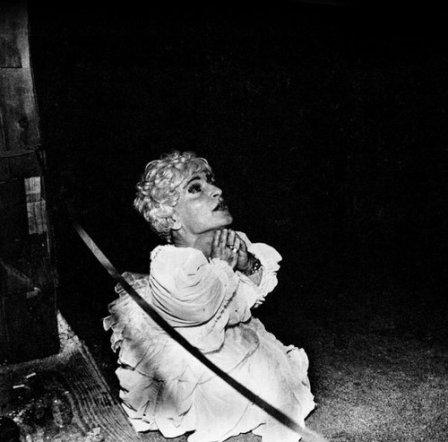What is there to say about Halcyon Digest that wasn’t already said about Microcastle? With one ‘proper’ full-length, two stop-gap EPs, and another two Atlas Sound albums since 2007’s Cryptograms, the idea of Deerhunter as a pop group no longer comes as a shock. There’s an ongoing progression toward accessibility, but the trajectory remains the same as it was two years ago. Is it lazy or dismissive to refer to Halcyon Digest as yet another emotionally rich, sensitive, and atmospheric work from Bradford Cox and Co?
One thing you can’t say about Halcyon Digest is that it’s surprising. Because it’s less abrasive and dissonant than Deerhunter’s past, the boundaries between Deerhunter and Atlas Sound are starting to blur. The template — bedroom renditions of 1950s pop melodies, soft walls of sound, unshakable pangs of desire, longing, and regret — is precisely what you would expect from the no-longer-fringe Atlanta band. There are new variations on these recurring themes: whereas Microcastle’s strongest tracks built toward urgent, electric catharsis, Halcyon Digest is all pent-up, without even momentary release. This reserved emotional consistency makes for a more placid experience than expected, perhaps, but Deerhunter more than compensate for the lack of squalor with an expanded range of instrumentation and refined, emotional articulation.
It’s convenient to ascribe these changes to maturity, but is that assumption correct? Bradford Cox used to thrive on shock value; noise is an easy shorthand for frustration or anger, but confusion is far more difficult to convey in either text or music. Halcyon Digest might be an easy listen, but it takes effort to digest. Brief moments of transcendence break through the album’s cracked, depressed facade, though even those are fleeting. The final three minutes of “Desire Lines” build majestically, swelling and sinking with increasing urgency, but ultimately the motorik guitar loop turns inward, shrinking and shrinking until it dissolves and the song ends. Within the first seconds of the echoic, submerged-sounding “Basement Scene,” it’s obvious that emotional relief will continue to be just beyond reach.
Tempting as it might be to gravitate toward Halcyon Digest’s tidy, poppy compositions — “Desire Lines” being one of them — they’re ultimately less interesting than their stunted, gormless counterparts. “Sailing,” a spare, revealing (and appropriately woozy) ballad, is naked enough to redirect its resignation onto the listener: “Only fear can make you feel lonely out here/ You learn to accept whatever you can get.” Although it might disappoint initially, “He Would Have Laughed” — Halcyon Digest’s concluding tribute to Jay Reatard — is as monumental a capstone as “Twilight At Carbon Lake” was for Microcastle. The regal gallop that makes up the song’s first half cleverly mirrors the searching restlessness expressed lyrically in the second: “Where do your friends go?/ Where do they see you?/ What did you want to be?” Ending with a purposeful whimper, Halcyon Digest refuses closure or absolution. Cox seems to be admitting that some ghosts linger and that it’s sometimes better to let them hang around.
In many ways, Reatard haunts the whole album. Even the upbeat songs sway melancholically. “Coronado,” brassy with “Young Americans”-style saxophone, deals with loss and reckoning in stirring, meaningful ways. The contrast between the scintillating exteriors of “Coronado” and “Memory Boy” and the interioric thematic concerns is effectively dissonant, but never jarring or unsatisfying. And that duality seems to be the key to the current iteration of Deerhunter.
One would be hard-pressed to call Halcyon Digest ambient, but there’s a spare economy reflected in the album’s emotional ambivalence. Deerhunter is less confrontational, less challenging than they once were, but they never fail to engage their listeners on a personal level. Whether encouraging fans to street-team for new songs or writing space for individual associations into their music, Deerhunter treats music as a collective experience, an attitude that recalls pre-digital fandom as much as post-blog interconnectivity. Even at their most aloof, they dare us to feel something, to break through the confusion and the drugged-out, dreamy reveries, to find — who knows? The point is that they succeed at making us feel something, and on Halcyon Digest they do it via indirect means. Is that more mature? Maybe. It’s a significant but subtle development. As difficult as it might be to find fresh plaudits with which to laud Deerhunter, they continue to deserve every single redundant bit of acclaim.
More about: Deerhunter




